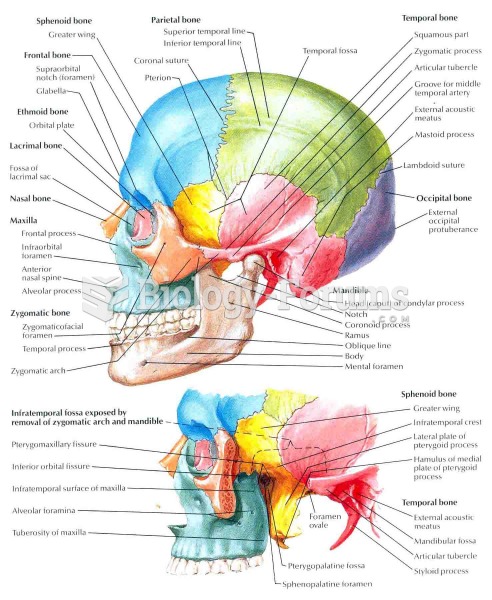|
|
|
The first documented use of surgical anesthesia in the United States was in Connecticut in 1844.
Eating carrots will improve your eyesight. Carrots are high in vitamin A (retinol), which is essential for good vision. It can also be found in milk, cheese, egg yolks, and liver.
Most fungi that pathogenically affect humans live in soil. If a person is not healthy, has an open wound, or is immunocompromised, a fungal infection can be very aggressive.
The calories found in one piece of cherry cheesecake could light a 60-watt light bulb for 1.5 hours.
The average older adult in the United States takes five prescription drugs per day. Half of these drugs contain a sedative. Alcohol should therefore be avoided by most senior citizens because of the dangerous interactions between alcohol and sedatives.
 Vertebral compression Fractures of the spine (vertebra) can cause severe ”band-like” pain that radia
Vertebral compression Fractures of the spine (vertebra) can cause severe ”band-like” pain that radia
 The percentage of women over 40 in the United States who are childless has almost doubled in the ...
The percentage of women over 40 in the United States who are childless has almost doubled in the ...





